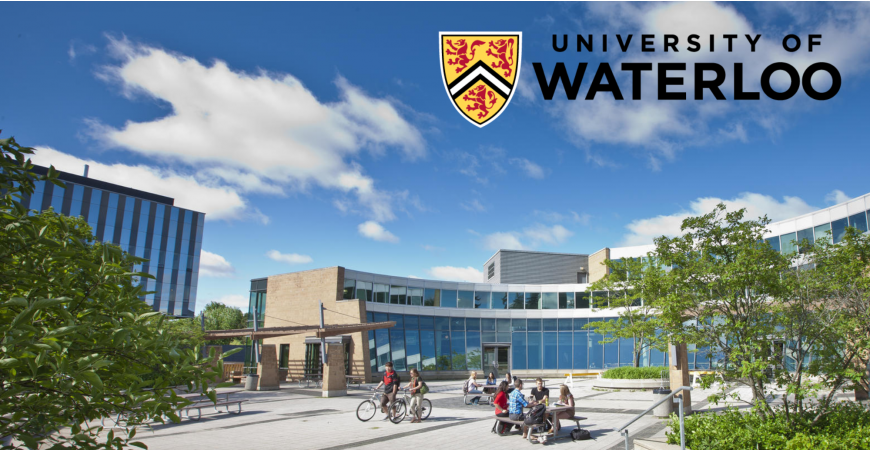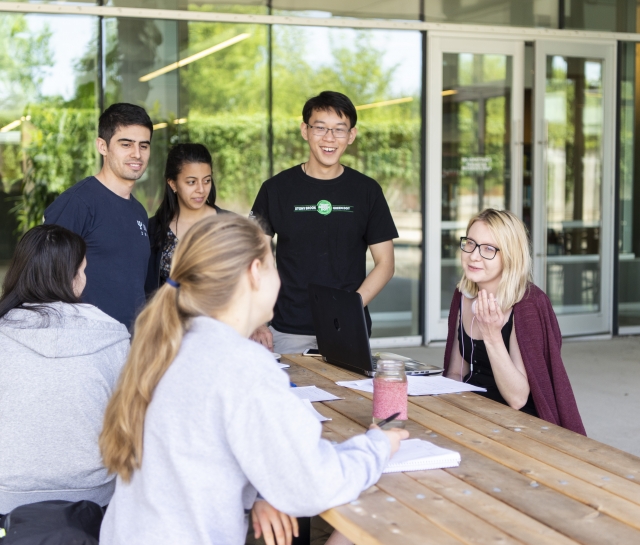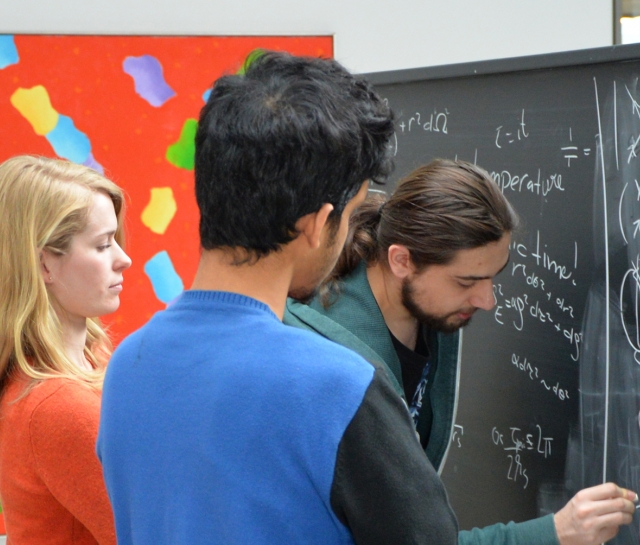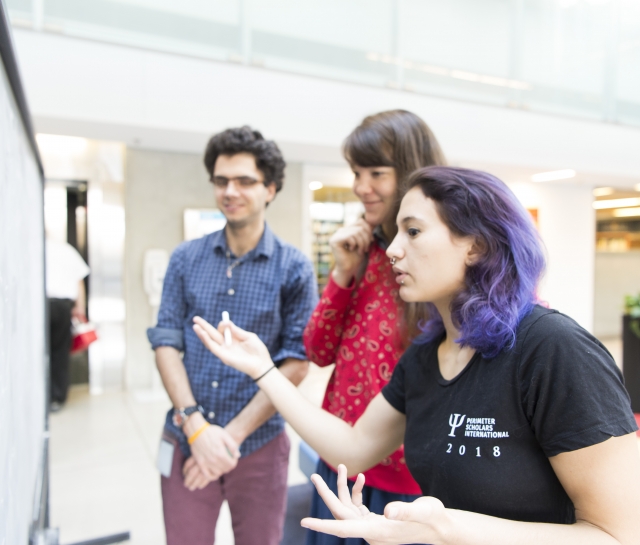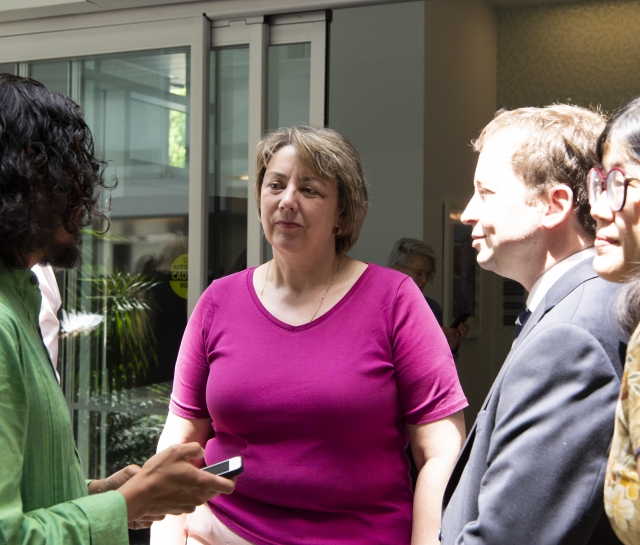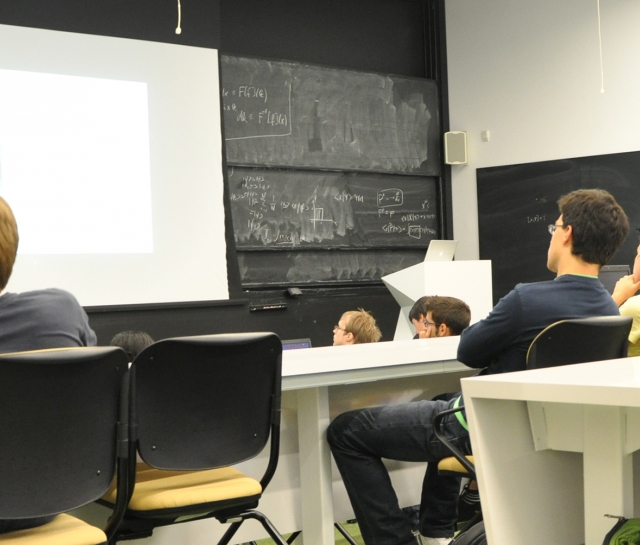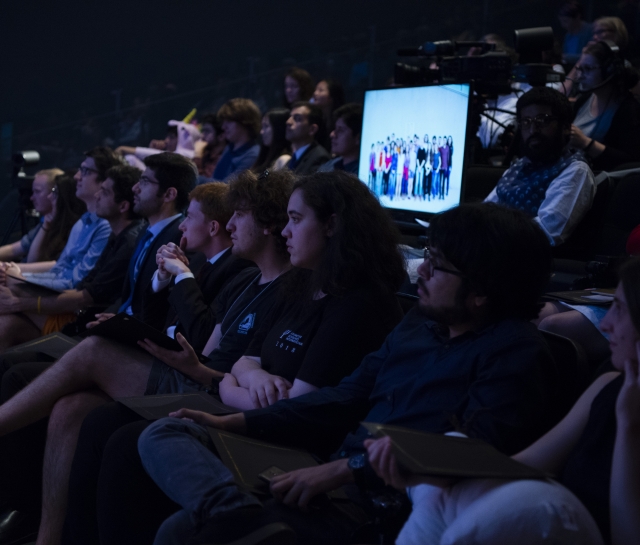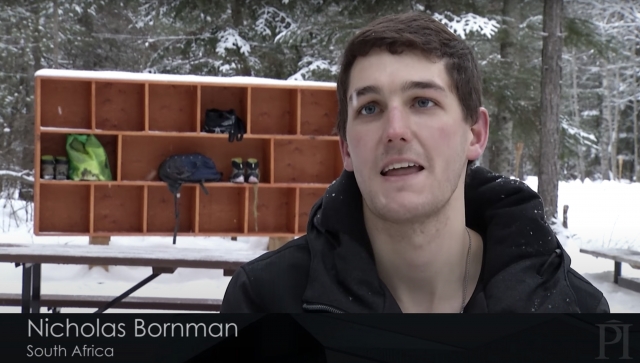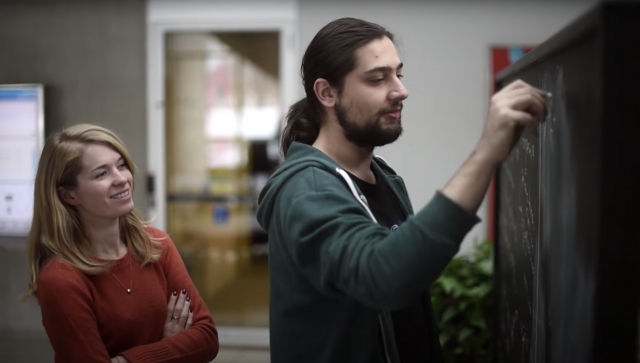PSI master's program
Perimeter Scholars International
PSI is a master's program focused on theoretical physics, designed to bring exceptionally motivated and highly qualified graduate students to the foreground of cutting-edge physics while offering an intensive and interactive training environment. PSI is a condensed one-year program offered in collaboration with the University of Waterloo.
Taught by academic staff and faculty at Perimeter Institute and by some of the world’s top physicists, students at PSI are fully integrated into the unique international culture and dynamic research atmosphere at Perimeter Institute for Theoretical Physics — a leading centre for education — while earning a Master of Science from the University of Waterloo in Ontario, Canada.
(Picture: University of Waterloo Student Union Building)
Why choose PSI?
PSI is the perfect program for you if:
- You know you want to pursue theoretical physics, but have not yet committed to a sub-field (such one of Perimeter's research areas). The PSI program will expose you to the full breadth of theoretical physics allowing you to discover your area of interest.
- You want to continue your studies with a PhD, working under the guidance of a Perimeter faculty member.
- You value collaboration over competition and are interested in conducting research-driven coursework alongside some of the world's leading theoretical physicists.
- You want to immerse yourself in theoretical physics, push your limits, and experience a once-in-a-lifetime physics "boot camp" among like-minded peers from around the globe.
"It’s a very flexible program. I think on the surface it looks really structured, but they work with you to make it the experience that you want. Like being able to do my PSI essay with industry — they were open to, and excited to explore, that.” – Elizabeth Bennewitz, US
"Everyone knows that PI is a unique place to get in touch with all the major areas in theoretical physics, but the PSI program is much more than that. It's about the sense of belonging with other PSI grads and everything that comes with that. …Now I'm grateful to say I have friends from all over the world who will also be great scientists." – Bruno de Souza Leao Torres, Brazil
"I learned more about physics and cutting-edge research than I ever thought possible." – Cristian Ardelean, Canada
Perimeter is committed to equity, diversity, and inclusion in our community.
How are admissions and funding handled?
Each year, Perimeter admits around 25 exceptional students from a multitude of countries. Those students are awarded a scholarship that covers costs such as tuition, meals and accommodations, among other necessities. See more information on the financial support page.
When is PSI?
The PSI program starts in September and runs for typically 10 months to June of the following calendar year.
Curriculum
Two phases of coursework and a short research project make up PSI, advancing:
- Core topics – foundational graduate-level subjects including classical physics, quantum theory, general relativity, quantum field theory, statistical physics, mathematical physics, and numerical methods.
- Elective courses – modern topics from fields such as cosmology, particle physics, gravitational physics, string theory, quantum information, quantum matter, and cutting-edge research topics from various specialized fields.
Students advance their research skills through:
- Winter school – a week-long, hands-on group research project in collaboration with selected researchers.
- Essay – a research project supervised by a faculty member, producing an essay that is publicly presented and defended at the end of the PSI program.
Assessment throughout the year is conducted by the academic staff as oral interviews (for core courses), homework assignments, and tutorial participation. All course grades are either "credit" or "no credit." The goal is to encourage all students to achieve their potential and to avoid grade-chasing competition. Read more on the program's FAQ page.
Successful graduates will earn a Master of Science in Physics degree from the University of Waterloo, as well as a Perimeter Scholars International certificate from Perimeter Institute for Theoretical Physics.
The PSI certificate is given to students at the end of the program, while the master’s degree is awarded at the university’s convocation ceremony following the end of the academic term.
Delve deeper into the PSI program
Main Navigation
The PSI program is supported by the Savvas Chamberlain Family Foundation, the Hellenic Heritage Foundation, the Marsland Family, and members of the Emmy Noether Circle.

